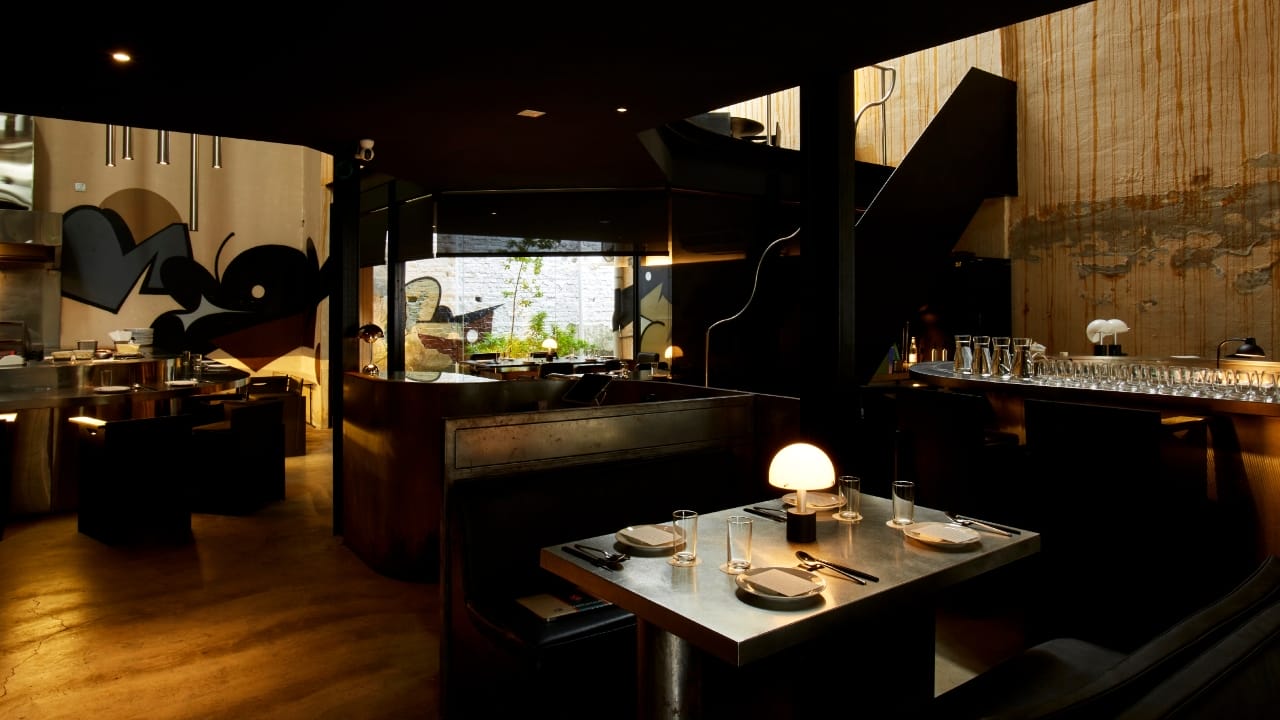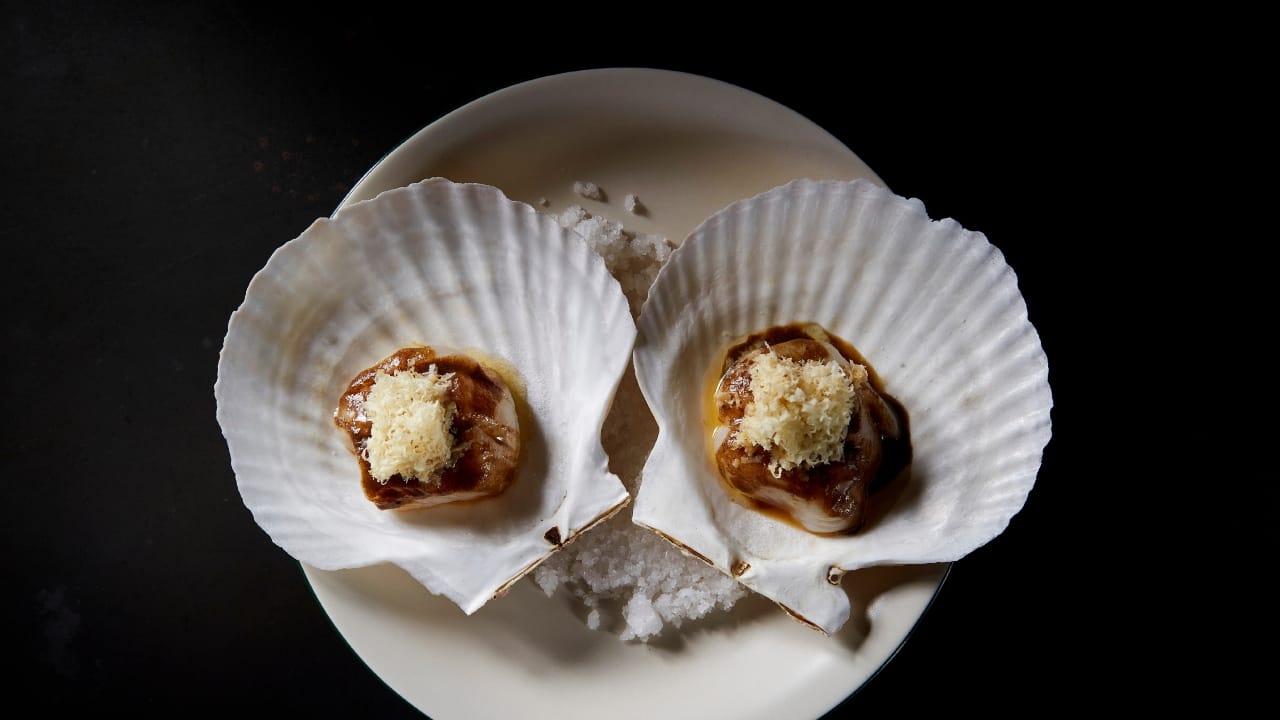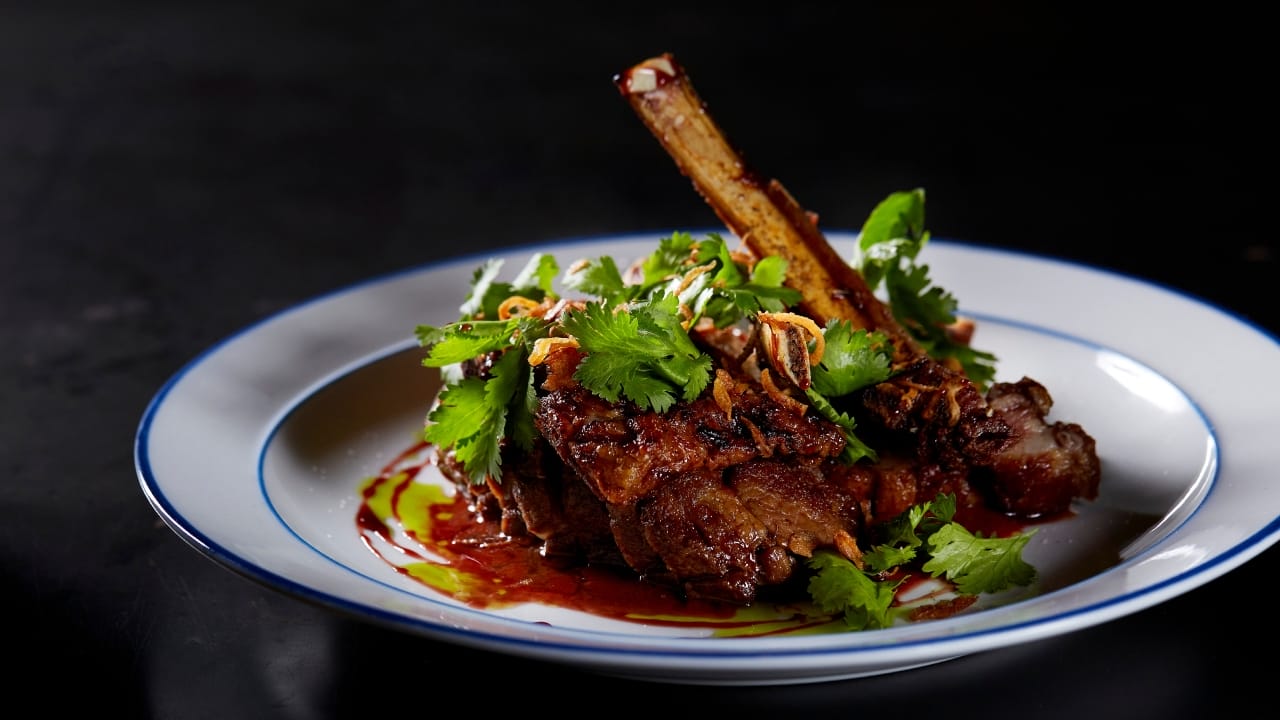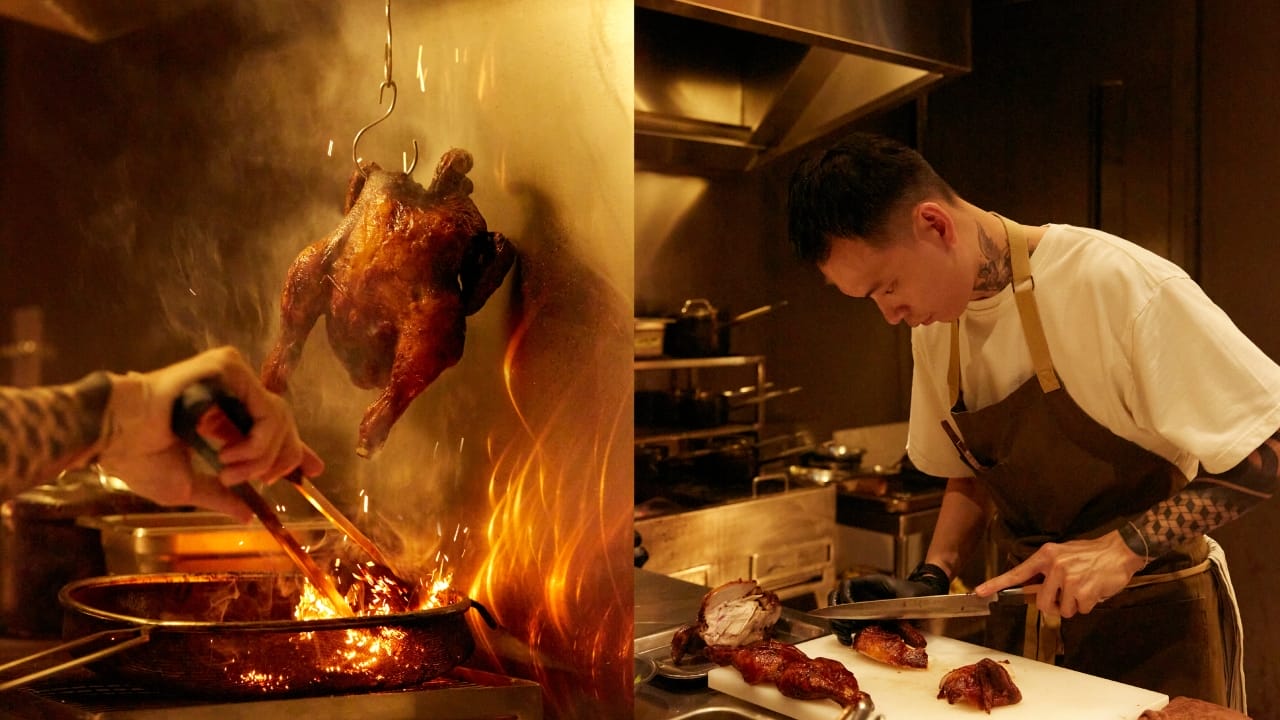There are numerous cafes and restaurants on Penang Island that feature aesthetic interiors, but I have yet to come across one quite as, well, cool, as Lucky Hole. Tucked in a former warehouse along Beach Street, there are splashes of graffiti on the walls, steel surfaces, melted candles, black furniture pieces dotted around the dining area, and streaks running down the walls—an effect actually created by pouring acid on nails. With Daniel Caesar crooning in the background and its warm lighting, Lucky Hole is a cosy place to share a meal with a beau or a tête-à-tête with friends. The restaurant’s edgy yet sophisticated ambiance is a reflection of the personal style of the heavily tattooed yet soft-spoken chef-founder Waymann Cheong.

The rising culinary star won The 2025 Michelin Guide Young Chef Award and earned Lucky Hole an entry as a Selected venue in The Michelin Guide Kuala Lumpur & Penang 2025. Born into a family from the food industry in Penang, the 31-year-old’s interest in food started at an early age. “I was brought up by my aunt and I would follow her to the market every morning to get ingredients,” Cheong says. “The kitchen was always busy, and we used to cook with charcoal instead of gas, which I had to help keep an eye on.”

After earning his diploma in culinary arts from UOW Malaysia (formerly known as KDU) in Penang, he honed his skills at fine dining establishments such as the now defunct Pollen in Singapore, ranked number 15 on the Asia’s 50 Best Restaurants 2024 list. “After I came back, I discovered that I don’t really like to stick to a certain cuisine,” he said. “I don’t want to have any limitations because my end goal is simply to serve good food.”
The menu changes every three months and even periodically according to Cheong’s mood, so prepare to be surprised. “I’d say when it comes to my dishes, I’m rebellious. I also love having an open kitchen because I can see how the guests are doing. If they’re drinking, the seasonings can go slightly stronger, and I love adding small touches to connect with them.”

Don’t miss out on their Hokkaido scallops, which are air flown twice a week. “We take the trimmings from truffles and make them into ponzu—a citrus-based Japanese condiment—four days ahead to allow the flavours to be balanced. We then finish it off with a dollop of corn cream at the bottom and shave some walnut on top,” he explains, which results in melt-in-your-mouth scallops.

Another notable seasonal starter is a deliciously crispy polenta with parmesan, complemented by the umami depth of Nori-Sour cream and elevated with the sweet brininess of Hokkaido uni and pops of ikura (salmon caviar).

“We cook the lamb rack whole, but first we render the fat down to get the skin crisp up to crackling over the charcoal,” Cheong explains. “Then, we split the loin to make sure the meat is tender. We also create a Berry Peri-Peri sauce, with a dash of raspberry and cranberry to make a savoury jam with a spicy kick of sorts. We finish it off with a light drizzle of pomegranate molasses on top to balance everything out, as well as coriander and deep fried shallots for added freshness and texture.”
View more of the food
With the restaurant’s urban aesthetic chic interiors and bold flavour combinations, Cheong has proved that he has way more than luck up his sleeve—and he’s just getting started.

Photos by Law Soo Phye






